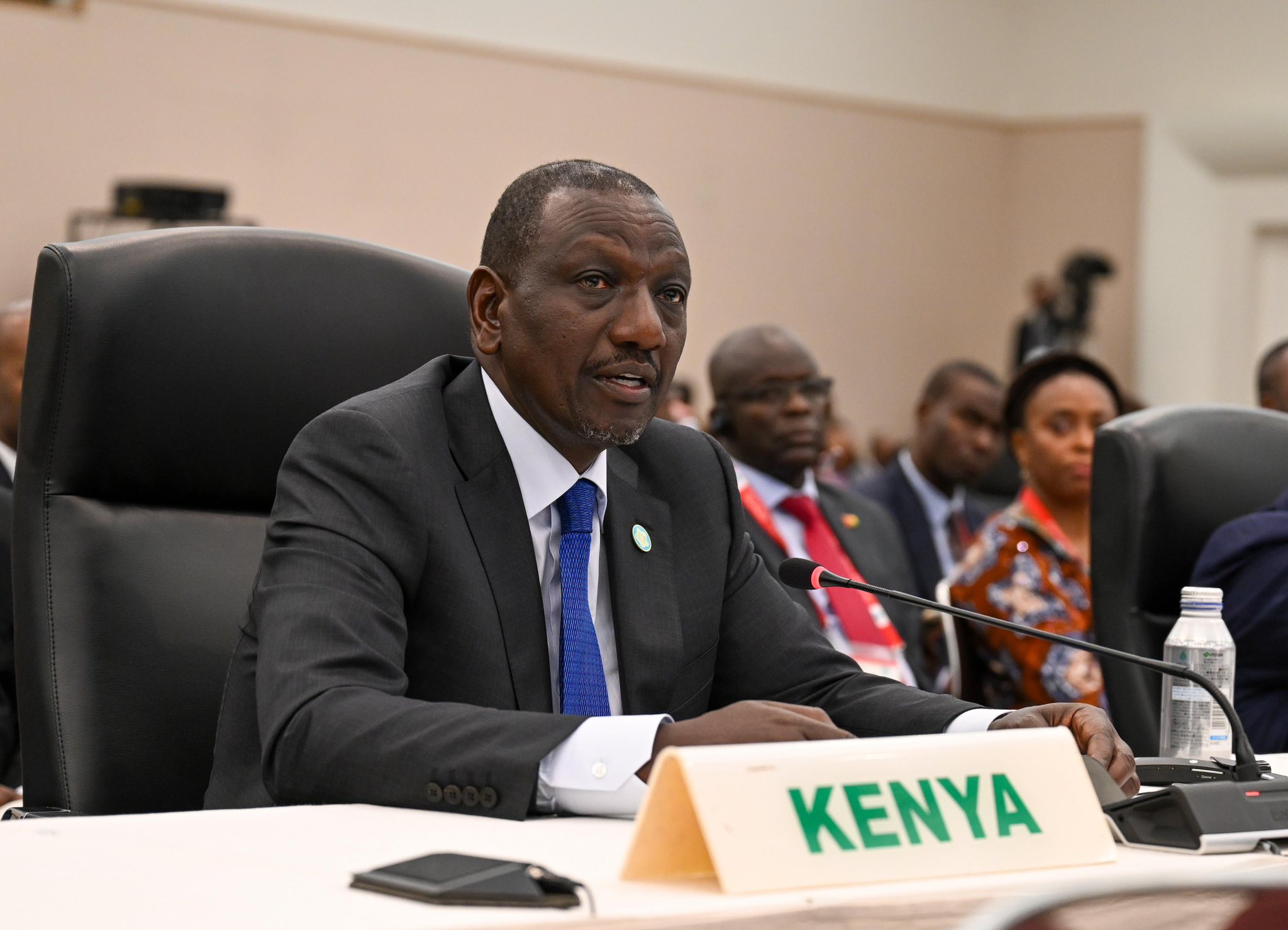President Ruto’s Bold Move: Declaring August 27 as Katiba Day – A Tribute to Kenya’s Constitution or Mere Symbolism?
By James Edwin
In a move that’s sparking conversations across Kenya’s bustling streets and digital spaces, President William Ruto has officially proclaimed August 27 as “Katiba Day.” This annual observance, starting in 2025, aims to honor the promulgation of the 2010 Constitution – a landmark document that reshaped Kenya’s governance landscape. But here’s the catch: it’s not a public holiday. Kenyans will mark the day while going about their usual routines, with a focus on civic engagement and reflection on constitutional values.
As we approach the 15th anniversary of the Constitution’s promulgation on August 27, 2010, this proclamation comes at a pivotal time. Kenya has seen its share of political upheavals, from the post-election violence that birthed the need for a new constitution to recent protests demanding accountability and good governance. Street.co.ke dives deep into what this means for everyday Kenyans – from matatu drivers in Nairobi to farmers in the Rift Valley.
The Historical Backdrop: Why Katiba Day Matters
To understand the significance of Katiba Day, we must rewind to the early 2000s. Kenya’s old constitution, inherited from colonial times and amended repeatedly under previous regimes, was widely seen as outdated and favoring the elite. The push for a new one gained momentum after the 2007-2008 post-election crisis, which claimed over 1,000 lives and displaced hundreds of thousands. The 2010 Constitution was born out of a national referendum, promising devolution, human rights protections, and a more equitable distribution of power.
Promulgated on August 27, 2010, by then-President Mwai Kibaki, it introduced key reforms: a devolved government with 47 counties, an independent judiciary, and expanded freedoms like expression and assembly. It was hailed as one of Africa’s most progressive charters, emphasizing citizen-centered governance and the rule of law. Fast forward to 2025, and President Ruto’s proclamation positions this date as a perpetual reminder of that transformative moment. In his words, the Constitution marked “a turning point in Kenya’s history by ushering in constitutionalism, citizen-centred governance, devolution, equitable development, and protection of fundamental rights and freedoms.”
For many on the streets, the Constitution isn’t just a legal text; it’s a symbol of hope. Think about the devolution that brought services closer to the people – county hospitals, roads, and markets that have changed lives in places like Kisumu and Mombasa. Yet, challenges persist: corruption scandals, unequal resource allocation, and recent controversies over executive overreach have tested its resilience. Katiba Day, therefore, could serve as an annual health check for Kenya’s democracy.
Breaking Down the Proclamation: What Exactly Did Ruto Say?
Issued on August 25, 2025, from State House, Nairobi, the presidential proclamation is detailed and emphatic. President Ruto declared: “NOW THEREFORE, I, WILLIAM SAMOEI RUTO, President and Commander-in-Chief of the Kenya Defence Forces, by the authority vested in me by the Constitution, do hereby proclaim THAT: 27th August, 2025, and every 27th day in the month of August forever thereafter shall be observed as ‘Katiba Day’ in commemoration of the promulgation of the Constitution of Kenya 2010.”
Key highlights include:
- Annual Observance: Starting this year, August 27 will be Katiba Day every year, both in Kenya and at Kenyan diplomatic missions abroad.
- No Public Holiday: Unlike Mashujaa Day or Madaraka Day, this won’t be a day off. It’s designed as a “working day” to encourage productivity while fostering dialogue.
- Focus on Civic Engagement: Government offices, educational institutions, and county governments are directed to organize activities promoting constitutional awareness. This could include seminars, debates, and community forums on topics like devolution and human rights.
- Symbolic Timing: 2025 marks the 15th anniversary, making it a “symbolic moment” for national reflection.
State House spokespersons emphasized that Katiba Day is about renewing commitment to constitutionalism, not just celebration. The government calls it a day for “fostering national dialogue on constitutionalism and civic engagements.”
From a street perspective, this proclamation aligns with Ruto’s administration’s emphasis on bottom-up economics and citizen participation. But skeptics question if it’s enough amid ongoing issues like high living costs and youth unemployment.
Public Reactions: Cheers, Jeers, and Everything In Between
The announcement has elicited mixed reactions, as seen on social media platforms and in street conversations. Supporters view it as a historic step toward embedding constitutional values in national consciousness. A political advisor called it “encouraging and historic,” urging Kenyans to defend the Katiba for a just society.
Media outlets have largely welcomed it, noting its role in commemorating the Constitution’s legacy and promoting civic education. However, not everyone’s enthusiastic. Critics on social media labeled it a “side show” from a president struggling with tangible reforms. Some argued that unlike Kibaki, who delivered the Constitution without fanfare, Ruto is distracting from failures. Others expressed disappointment that it’s not a holiday, seeing it as symbolic without substance.
In informal discussions, some Kenyans joked about needing more holidays amid economic pressures, while others appreciated the focus on education. Overall, the divide reflects Kenya’s polarized politics: pro-government voices see progress, while opposition sympathizers demand action over proclamations.
Implications for Kenya: Education, Governance, and the Future
Beyond the headlines, Katiba Day could have far-reaching effects. In schools, it might integrate into curricula, teaching students about rights and duties – a boon for civic education in a country where youth-led protests have highlighted generational gaps. Counties could use it to showcase devolution successes, like improved infrastructure in marginalized areas.
On governance, it reinforces Ruto’s narrative of upholding the Constitution, especially after criticisms over handling recent protests. By mandating activities in government offices, it could promote accountability, though cynics worry it might become another bureaucratic exercise.
Economically, as a working day, it avoids lost productivity – a smart move in a nation grappling with debt and inflation. Diplomatically, observing it abroad strengthens Kenya’s image as a constitutional democracy, potentially aiding foreign relations.
Yet, challenges loom. Will participation be genuine, or forced? In rural streets where constitutional awareness is low, how will this translate? And amid calls for amendments – like on term limits or executive powers – Katiba Day could spark debates on reforming the very document it celebrates.
From Street.co.ke’s lens, this is a step toward empowering the mwananchi. Imagine street vendors in Gikomba discussing rights over chai, or bodaboda riders in Eldoret debating devolution. If implemented well, it could bridge the gap between the elite and the streets.
Embracing Katiba Day on the Streets
As Kenya gears up for the inaugural Katiba Day in two days, President Ruto’s proclamation invites us all to reflect. It’s a reminder that the 2010 Constitution isn’t static; it’s a living document demanding our vigilance.
Whether you see it as symbolism or substance, one thing’s clear: in Kenya’s vibrant streets, conversations about governance never stop. Street.co.ke will be watching how this unfolds – join the dialogue in the comments below. What do you think Katiba Day means for you?

